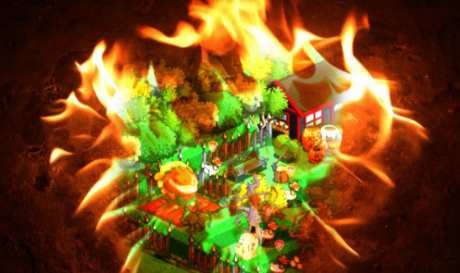The inherent flaws with 'FarmVille-esque' social gaming

Honestly, now. When was the last time you checked the rolling green hills of FarmVille, or your burgeoning urban fortunes in CityVille?
Zynga, the creator behind the massively successful virtual world and role-playing games, including Mafia Wars and over a dozen more, does not appear to be held in the same light as once was.
But the finances of the company show otherwise. Not only has the company recently chosen Ireland to focus its booming customer relations center, Zynga is close to floating stock for the public offering.
The younger Generation Y and their innate passion for social networking spurred on the company's gaming platform with their most popular game to date, FarmVille.
There is no doubt that Zynga is growing from strength to strength, but its starting point games seem to show another story.

There is an inherent gamble with social games like FarmVille, CityVille, Mafia Wars and so on, and it revolves around the very social factor itself that made the games as viral as they are.
Since the inception of Facebook's application platform, games and applications have been growing from strength to strength.
For many, those with a vast number of friends on MySpace, Facebook and other social platforms,games are only a small fraction of the wider experience.
FarmVille, as the flagship game behind Zynga's success, has been dropping users month by month from a monthly high of 83 million down by half today to 42 million. But it still features as one of the highest contributors to Facebook's booming social contributions, accounting for 43 per cent of news sharing.
But it does not guarantee the return one would hope. One set of socially networked friends may be entirely different from another set of online friends; and here lies the problem.
The cash for goods or rewards is an excellent business plan, but does not necessarily guarantee that the audience -- vastly social networking users -- will either pay to unlock features due to their lack in social gaming friends, or to even pay at all.
Some are in it for the long haul; sociable gaming friends or otherwise. Many, however, simply give up and bail from what appears to be an unbeatable game.
I bailed. I'll admit it. Not enough of my friends were playing for my game progress to value any merit. But I spent totalling over £150 in the game over the course of the year to improve my progress.
Besides which, flaws and bugs, along with downtime and a persistent 'beta' tag leads one to believe that the game was initially rushed out there. It could be seen that Zynga was making its move on the social gaming world without much thought towards its all but inevitable viral success of its games.
But perhaps the first and foremost problem of social gaming is arguably whether it even works. I don't mean specifically on Xbox Live or the PlayStation Network where you can voice and text communicate with your friends. A pre-existing platform for which developers can plug into the social aspects, rather an in-built feature of many modern consoles.
There is without doubt that Zynga is immense company to aspire to; in particular for small start-ups that aim to use social networks as a platform to build on.
But 'throwing bodies at the problem' as one anonymous source claimed is the solution to FarmVille's woes may eat away the company finances in the long term.
FarmVille appears to me at least, as a short term game for a generation intrinsically focused on 'the next big thing', cannot sustain itself in the social gaming world.
Now, if you were to talk about a console version of FarmVille or CityVille, that could raise the stakes somewhat.
[poll id="48"]